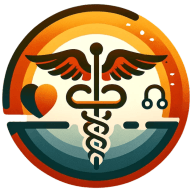How Can You Navigate Complex Ethical Decisions in Healthcare?
When faced with intricate ethical dilemmas in healthcare, professionals, from an anesthesiologist to a plastic surgeon & medical director, offer their seasoned advice. Alongside these expert perspectives, we've gathered additional answers that underscore the importance of a holistic approach. From organizing collaborative family meetings to the transparent documentation of decision-making rationales, here's a spectrum of guidance for navigating the moral complexities of the medical field.
- Organize a Collaborative Family Meeting
- Follow a Structured Decision Approach
- Adhere to Established Ethical Codes
- Balance Evidence with Patient Rights
- Consult Institutional Ethics Committees
- Embrace Multidisciplinary Teamwork
- Document Rationale Transparently
Organize a Collaborative Family Meeting
One significant piece of advice for healthcare professionals facing complex ethical decisions in the medical field is to recognize that they do not have to tackle the decision alone. Organizing a family meeting, involving physicians and healthcare professionals from various disciplines who are part of the patient's care team, can provide valuable perspectives and support.
Bringing everyone together at a round table to openly discuss the implications of different decisions can foster collaboration, and ensure that all aspects of the situation are considered thoroughly. Additionally, seeking an ethics consultation can offer further guidance and insight into navigating the ethical complexities involved.
It's essential to engage in ongoing dialogue with the family over time, rather than addressing the issue in a single visit. This approach allows the family ample opportunity to clarify their goals of care, and ensures that decisions are made with their best interests in mind, while upholding ethical principles.

Follow a Structured Decision Approach
When facing complex ethical decisions in healthcare, I recommend a structured approach. First, thoroughly gather all relevant information. Consult widely with colleagues and ethics committees to gain diverse insights. Prioritize patient autonomy by ensuring patients are fully informed and involved in decision-making.
Look to established guidelines and precedents for additional guidance. Finally, document all processes and rationales meticulously. This method ensures decisions are thoughtful, comprehensive, and uphold the highest ethical standards.

Adhere to Established Ethical Codes
In the realm of healthcare, navigating complex ethical decisions often requires a grounding in established ethics. Professionals should closely adhere to the ethical codes that are relevant to their field, which are designed to guide decision-making in challenging situations. These guidelines serve as a beacon, reflecting the consensus of the professional community on various ethical dilemmas.
By rigorously applying such standards, healthcare workers can make informed choices that align with the best practices in the industry. This process should be accompanied by regular ethical training, to ensure up-to-date knowledge and application of these codes. Healthcare professionals are encouraged to stay informed about and committed to these ethical codes in their practice.
Balance Evidence with Patient Rights
When confronted with difficult ethical decisions in healthcare, it is critical to balance the best evidence-based outcomes with the rights of the patient. Providers must consider the latest research and data to make choices that can be medically justified. Equally important is the need to respect patient autonomy, ensuring that patients are able to make informed decisions about their own care.
This involves clear communication and an understanding of the patient's values and wishes. It's essential to blend empirical data with a compassionate appreciation for the individual's preferences. Healthcare workers should strive to maintain this balance as they make ethical decisions.
Consult Institutional Ethics Committees
Healthcare professionals may find assistance in navigating ethical decisions by leveraging the expertise of institutional ethics committees. These committees are composed of professionals with diverse backgrounds and experiences, providing a formal mechanism for reflecting on and addressing ethical issues that arise in healthcare settings. Utilizing the guidance and recommendations from these committees can be invaluable, as they often provide a nuanced understanding of ethical complexities.
The committees' insights should be sought whenever there are challenging decisions to be made, and their input can provide a structured framework for resolving ethical dilemmas. Healthcare institutions are urged to engage with their ethics committees for support in complex cases.
Embrace Multidisciplinary Teamwork
A multidisciplinary decision-making approach is beneficial when dealing with ethical complexities in healthcare. Involving a team of professionals from various disciplines can offer a broader perspective on patient care issues, ensuring that multiple viewpoints are taken into consideration. This collaborative method encourages dialogue and discussion among healthcare providers, which leads to a more well-rounded understanding of the ethical dimensions involved.
The synergistic effect of combining knowledge from different fields can lead to more compassionate and comprehensive patient care. Healthcare providers are advised to promote teamwork in ethical decision-making to enrich the decision process.
Document Rationale Transparently
Ensuring that ethical decisions in healthcare are made transparently and with a thoroughly documented rationale is imperative. The decision-making process should be clear and justifiable, with well-documented reasoning that explains how and why conclusions were reached. This transparency is not only vital for patient trust, but also for protecting healthcare providers in the event of legal scrutiny.
Documenting the process and the rationale behind decisions can also serve as an educational tool for future reference. It fosters accountability, and provides a learning opportunity for all involved. Healthcare providers are recommended to meticulously document their ethical decision-making processes.

